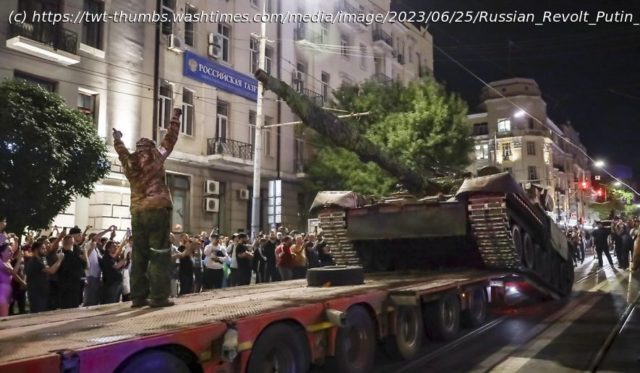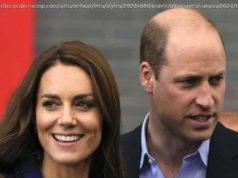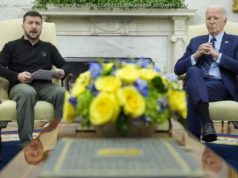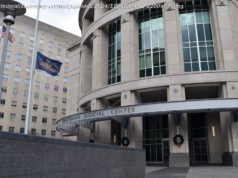Array
A seething Russian President Vladimir Putin denounced it as a “treacherous mutiny” that was “doomed to fail.”
Wagner Group mercenary chief Yevgeny Prigozhin called it a “demonstration of our protest” against the incompetently waged war in Ukraine by Mr. Putin’s generals.
President Biden, following a talk with Ukrainian President Volodymyr Zelenskyy, insisted the U.S. had nothing to do with it.
The only thing that seemed clear Monday was that the fallout from the aborted, semi-coup staged by Mr. Prigozhin’s forces over the weekend is certain to be felt for months to come.
Those events — including the Wagner Group’s seizure of a southern Russian town, a stunning armed advance on Moscow that encountered little government resistance, and a still-murky deal to call off the rebellion and allow Mr. Prigozhin to relocate his operations to neighboring Belarus — clearly shook Mr. Putin and his top aides, already on the defensive over a 16-month invasion of Ukraine in which little has gone according to plan.
“The entire incident just showcased a wide variety of weaknesses of the Russian state,” Catherine Doxsee, associate director for transnational threats at the Center for Strategic and International Studies, said in an interview with Bloomberg News.
“What we are coming into is a period where not only are Putin and Prigozhin are competing and jostling for continued control of Wagner’s broader business empire in places like Africa and the Middle East but we also have a huge precedent set for how weak the Russian state really is, how overextended it is. … For someone who relies on his strong man image, [Putin] now looks very weak.”
Despite their long, tangled history dating back to their joint rise to power in St. Petersburg in the 1990s, a tense Mr. Putin used an unscheduled national address Monday night to vent his fury toward Mr. Prigozhin while appealing to his thousands of hired warriors to come back into the fold.
Those behind the weekend rebellion “betrayed their country and their people,” Mr. Putin said at one point. The enemies of Russia “wanted Russian soldiers to kill each other, to kill military personnel and civilians, so that in the end Russia would lose, and our society would split, choke in bloody civil strife.”
He again pressed Wagner Group fighters to sign previously offered contracts to become part of the regular Russian army, the apparent spark that lit the fuse for Mr. Prigozhin’s uprising, saying, “The majority of Wagner commanders and fighters are patriots” who were “used covertly against their brothers-in-arms.”
Mr. Putin’s remarks came shortly after Mr. Prigozhin — who was not mentioned by name in the president’s address — released his own 11-minute video from an undisclosed location denying he had targeted Mr. Putin and attempting to justify his revolt.
On his Telegram social media site Monday, Mr. Prigozhin denied the operation was an attempt to overthrow the government of his longtime benefactor, Russian President Vladimir Putin. He called it “a march for justice” targeting Russian military leaders who he claimed have botched the invasion of Ukraine.
“Wagner was going to be disestablished and we protested that decision,” Mr. Prigozhin said Monday. “We stopped when it became clear that blood [would] be spilled.”
Mr. Prigozhin has made no secret of his contempt for Mr. Putin’s top military aides and how they have conducted the Ukraine war, targeting in particular Defense Minister Sergei Shoigu and General Staff chief Gen. Valery Gerasimov, saying they have badly mishandled the invasion and denied Wagner Group forces ammunition and needed support to help in the fight.
Separately, President Biden used a White House event Monday to make his first remarks on the Russian crisis, saying the U.S. played no role in the shadowy revolt. Mr. Biden said he had assured Ukrainian President Volodymyr Zelenskyy in a phone call that Washington would continue to support Kyiv.
Wagner’s leadership decided to march on the southern Russian city of Rostov-on-Don because it is the command and logistics hub for Russian military operations in Ukraine. The private mercenary firm, which has fought alongside Russian troops in the Ukraine campaign, briefly held the city and was traveling largely unopposed on the road to Moscow when Mr.
Start
United States
USA — Criminal Uneasy calm, uncertain future as rattled Putin denounces ‘treacherous’ uprising






